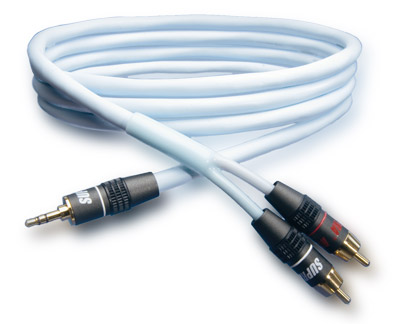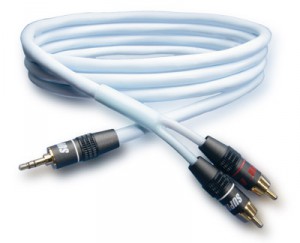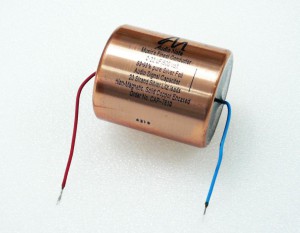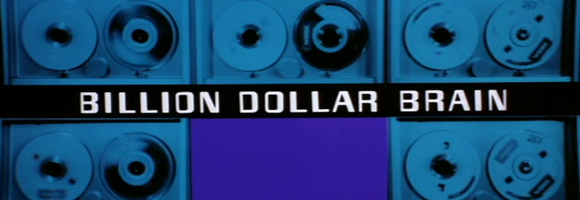Musical signals are low-bandwidth and not remotely challenging to transmit through a wire. The human brain however is a terrible measuring instrument, as it recalibrates itself continuously, selectively tuning in or out frequencies or entire sounds – like the hum from the fridge. That’s right, your brain removes sound. Until you decide it’s important ( can you hear your fridge now ? ) and then it puts it back again.
Clever thing the brain. It is also perfectly capable of adding the fundamental note when presented with the harmonics – adding a bass note that is not present in the signal – which is used in some musical instruments. That’s right. Your brain adds sound that is not there. So it can take sounds away ( until you want to notice them ) and also add sounds that are not there.
That’s why all “high-end” hi-fi cable manufacturers, and those defending the products, resort to “you have to use your ears” or “I heard a clear difference” and are yet never able to demonstrate any physical effect.
But … they are not wrong !
The supporters of fancy cables did “hear a difference” !
Just it wasn’t attributable to any change in the “extremely complex” signal on it’s 3 metre journey from amplifier output socket to speaker input terminal.
As mentioned, the brain is duplicitous, and ( you can try this yourself ) merely the suggestion of ( say ) a “more etched cymbal” will, in fact, lead to your brain prioritising the cymbal frequency as you unconsciously or otherwise, seek to validate this claim.
Really, give it a minute of your time. Play a track, then concentrate on ( say ) the cymbals. Wait 20 seconds. Well, well, well … the cymbals suddenly seem more prominent !
Hence why the advertisements and the backs of the packets on these products all squeak of “performance, deep lows, absence of grain” and so on. The power of suggestion, the power of wanting to believe ( helped by not wanting to believe you were mugged ) and, frankly, ignorance and belief in mystical physical properties as yet only known to audiophiles, is a powerful cocktail.
Your brain will happily play along, adding “deep lows” or subtracting “grain” or whatever. It’s no effort to remove the ( measurable ) sound of a fridge humming or add the bass fundamental to a stringed instrument, so adding a bit of “impact” and “timing” or subtracting some “fatigue” or other equally vague and unmeasurable “hi-fi” attribute is trivial. It happens without you having to think about it, just like the fridge noise fading out. The brain is a clever thing, and it’s cleverness makes it a terrible instrument for comparing sound reproduction.
Upon such trivialities lies almost the whole of the “high-end” hi-fi industry. And because hi fi is the only industry where one can can make a seemingly reasonable plea to “use your ears”, it is the only one where such cable nonsense persists.
I did once test this. A £5000 cable I noticed, is just silver-plated copper. Well, I went rather better. I used solid silver. Not that 92.5% costume jewelry rubbish either, proper 99.9% stuff. Not plated. Solid. Then I built an amp. I couldn’t trust that the manufacturer would use similar quality wiring all the way back from the amp output terminal to the output transistor or valve in the amp, could I ? No, I was in this for keeps. Then I went further, and after some research, got hold of the highest silver-content solder I could find. I didn’t want the precious and “complex” signal to be ruined by having to travel through non-premium components, or even normal, slightly less conductive solder used in every other amp.
So, I used the highest silver content solder I could find. It was still solder. But yes, you can find special “hi-fi” solder if you look hard enough. There is a very geeky Japanese hi-fi subculture that makes those worried about merely speaker wire seem almost negligently under committed. I was obsessed, so I looked hard. I found it, and indeed it is a bit of a pain to work with.
When it came to the capacitors for that amp, I had read many audiophile opinions and “knew” that these could ruin the sound if I chose poorly. So I contacted Tim de Paravicini, of Esoteric Audio Research, for advice. I ended up buying very special capacitors from him. They cost more than £20 each ( this was in the 1990s ). As Tim wrote to me, I remember his exact words, “the difference is not subtle”.
My listening room was humidity controlled, to maintain the wood of the speaker cabinets at optimum performance. Later, I had the wood cabinets replaced by ones hewn from solid marble, including the baffles. But still, humidity would affect the compliance of the woofer suspension, and with the right system, is clearly audible. One should take appropriate precautions.
There is a contention that those who mock fancy cables have not heard a good system, and that the physics of sending a narrow bandwidth signal through a few metres of wire is puzzling scientists everywhere. I feel reasonably qualified to answer: I have and it’s not.
If someone wants to spend money on nicely-branded cheap Chinese wire, wrapped up in colourful insulation and even more colourful marketing nonsense and they feel better for it, great. I’d suggest they perhaps try that “now listen to the cymbals” ( or drum, or anything ) test though. It demonstrates to anyone willing to spend 2 minutes that they, or a dealer’s comments, or marketing blurb, or peer pressure can affect the sound they hear without going to the expense and trouble of buying new bits of wire.
For me, I went as far as I could, without going barmy. What happens once the speaker cable enters the speaker ? Well I had that sorted too ( more pure silver ). But then it enters the crossover .. and is that a 5W wire-wound resistor there ?! Help ! And another capacitor ( I replaced with something blessed by the “community” ) . But then … no ! no ! The woofer itself has a voice coil ! More wire !
You can never catch the tail of this one. I left it in time, I hope. My system sounded great but so does my current one, using no special powers at all.
It’s a road that was kind of fun to travel down, but there is no destination other than poverty and a sad realisation that you may be more interested in the equipment than the purpose of the equipment.
Fancy cables are the disgraceful gateway drug into the madness, of no technical nor sound quality merit.
Just say no.
You’ll miss nothing











[…] As I wrote elsewhere … […]